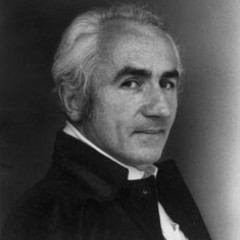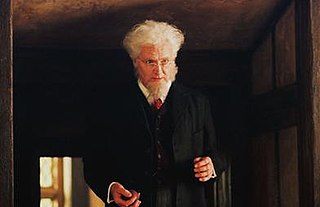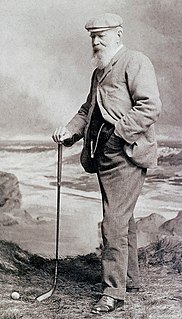Top 620 Plato And Socrates Quotes & Sayings
Explore popular Plato And Socrates quotes.
Last updated on November 25, 2024.
I cannot favour laws such as that of Idaho, which allows sterilization of 'mental defectives, epileptics, habitual criminals, moral degenerates, and sex perverts.' The last two categories here are very vague . . . The law of Idaho would have justified the sterilization of Socrates, Plato, Julius Caesar, and St. Paul.
Through Plato, Aristotle came to believe in God; but Plato never attempted to prove His reality. Aristotle had to do so. Plato contemplated Him; Aristotle produced arguments to demonstrate Him. Plato never defined Him; but Aristotle thought God through logically, and concluded with entire satisfaction to himself that He was the Unmoved Mover.
The shortest way to arrive at glory should be to do that for conscience which we do for glory. And the virtue of Alexander appears to me with much less vigor in his theater than that of Socrates in his mean and obscure. I can easily conceive Socrates in the place of Alexander, but Alexander in that of Socrates I cannot.
Socrates: So even our walks are dangerous here. But you seem to have avoided the most dangerous thing of all. Bertha: What's that? Socrates: Philosophy. Bertha: Oh, we have philosophers here. Socrates: Where are they? Bertha: In the philosophy department. Socrates: Philosophy is not department. Bertha: Well, we have philosophers. Socrates: Are they dangerous? Bertha: Of course not. Socrates: Then they are not true philosophers.
Socrates.- If all goes well, the time will come when one will take up the memorabilia of Socrates rather than the Bible as a guide to morals and reason... The pathways of the most various philosophical modes of life lead back to him... Socrates excels the founder of Christianity in being able to be serious cheerfully and in possessing that wisdom full of roguishness that constitutes the finest state of the human soul. And he also possessed the finer intellect.
Indeed, the very first acknowledgment (as far as I am aware) of the attraction of mutilated bodies occurs in a founding description of mental conflict. It is a passage in The Republic, Book IV, where Plato’s Socrates describes how our reason may be overwhelmed by an unworthy desire, which drives the self to become angry with a part of its nature.
So Socrates was a kind of gadfly. He was a sort of philosophical urban gorilla hanging around in the middle of Athens, asking these peculiar questions of everybody - important people, young men, slaves - questions that had to do with ultimately what's the life that's worth living. And Plato was one of the young men who hung around him, a very aristocratic young man, came from a very old, important family.
There have been many men who left behind them that which hundreds of years have not worn out. The earth has Socrates and Plato to this day. The world is richer yet by Moses and the old prophets than by the wisest statesmen. We are indebted to the past. We stand in the greatness of ages that are gone rather than in that of our own. But of how many of us shall it be said that, being dead, we yet speak?
Certain characteristics of the subject are clear. To begin with, we do not in this subject deal with particular things or particular properties: we deal formally with what can be said about any thing or any property. We are prepared to say that one and one are two, but not that Socrates and Plato are two.
If Confucius can serve as the Patron Saint of Chinese education, let me propose Socrates as his equivalent in a Western educational context - a Socrates who is never content with the initial superficial response, but is always probing for finer distinctions, clearer examples, a more profound form of knowing. Our concept of knowledge has changed since classical times, but Socrates has provided us with a timeless educational goal - ever deeper understanding.
Ways of loving from a distance, mating without even touching-Amor platonicus! The ladder of love one is expected to climb higher and higher, elating the Self and the Other. Plato clearly regards any actual physical contact as corrupt and ignoble because he thinks the true goal of Eros is beauty. Is there no beauty in sex? Not according to Plato. He is after `more sublime pursuits.' But if you ask me, I think Plato's problem, like those of many others, was that he never got splendidly laid.
Socrates called beauty a short-lived tyranny; Plato, a privilege of nature; Theophrastus, a silent cheat; Theocritus, a delightful prejudice; Carneades, a solitary kingdom; Aristotle, that it was better than all the letters of recommendation in the world; Homer, that it was a glorious gift of nature; and Ovid, that it was favor bestowed by the gods.
I am now even more persuaded of the urgent need to study why Socrates was accused. The dislike of philosophy is perennial, and the seeds of the condemnation of Socrates are present at all times, not in the bosoms of pleasure-seekers, who don't give a damn, but in those of high-minded and idealistic persons who do not want to submit their aspirations to examination.
It must be granted that in every syllogism, considered as an argument to prove the conclusion, there is a petitio principii. When we say, All men are mortal Socrates is a man therefore Socrates is mortal; it is unanswerably urged by the adversaries of the syllogistic theory, that the proposition, Socrates is mortal.
I am a humanist because I think humanity can, with constant moral guidance, create reasonably decent societies. I think that young people who want to understand the world can profit from the works of Plato and Socrates, the behaviour of the three Thomases, Aquinas, More and Jefferson - the austere analyses of Immanuel Kant and the political leadership of Abraham Lincoln and Franklin Roosevelt.
He that makes himself famous by his eloquence, justice or arms illustrates his extraction, let it be never so mean; and gives inestimable reputation to his parents. We should never have heard of Sophroniscus, but for his son, Socrates; nor of Ariosto and Gryllus, if it had not been for Xenophon and Plato.
Socrates: Have you noticed on our journey how often the citizens of this new land remind each other it is a free country? Plato: I have, and think it odd they do this.Socrates: How so, Plato?Plato: It is like reminding a baker he is a baker, or a sculptor he is asculptor.Socrates: You mean to say if someone is convinced of their trade, they haveno need to be reminded.Plato: That is correct.Socrates: I agree. If these citizens were convinced of their freedom, they would not need reminders.
The Sophists had this idea: Forget this idea of what's true or not—what you want to do is rhetoric; you want to be able to persuade the audience and have the audience think you're smart and cool. And Socrates and Plato, basically their whole idea is, "Bullshit. There is such a thing as truth, and it's not all just how to say what you say so that you get a good job or get laid, or whatever it is people think they want.



















































